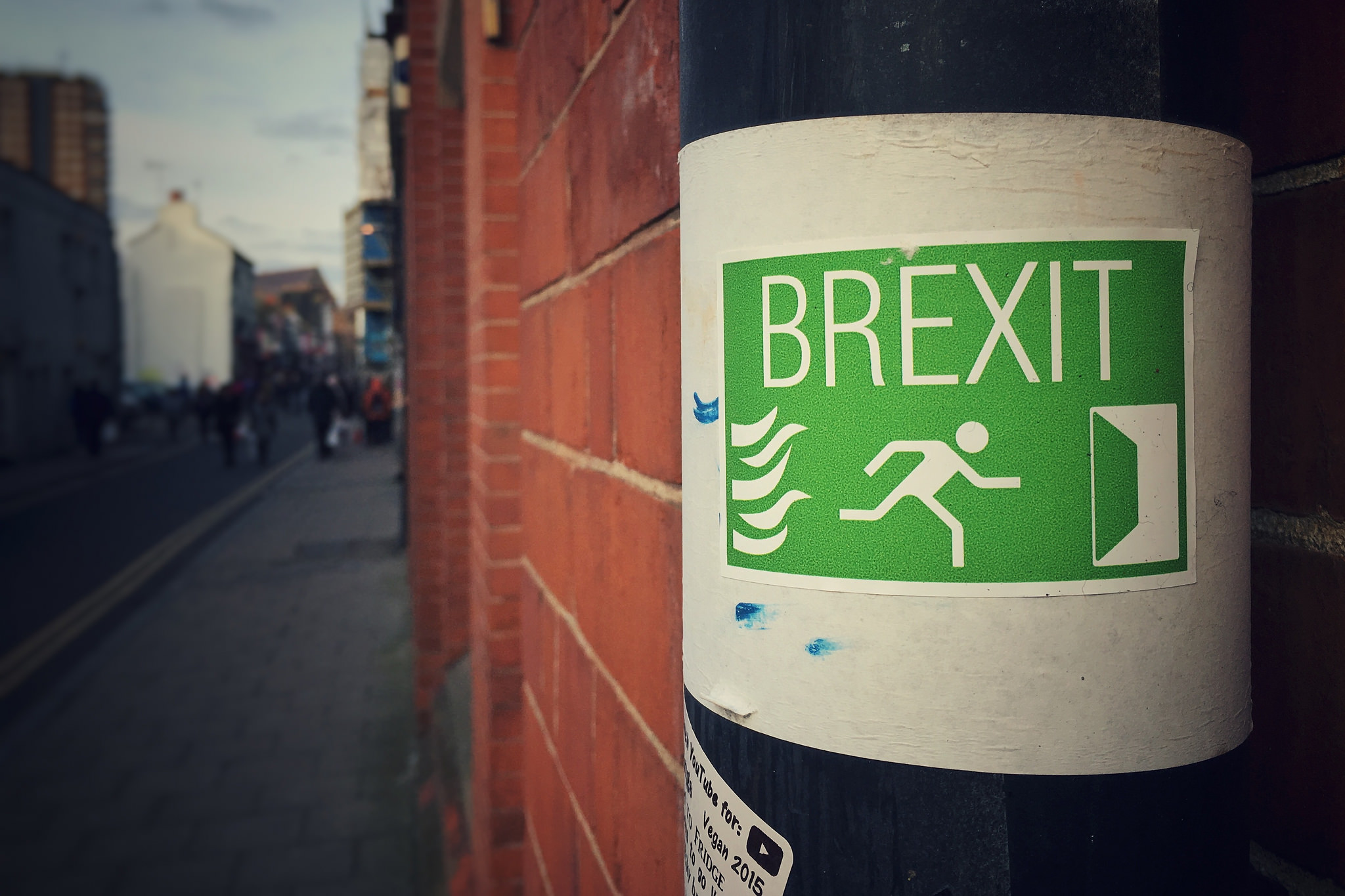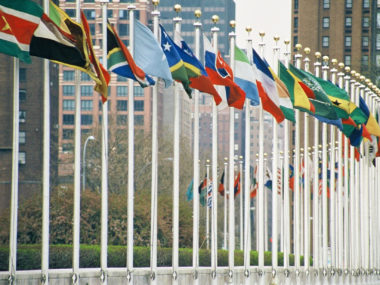By Erica Chenoweth for Denver Dialogues.

On Thursday, June 15, Jo Cox, a rising star in the British Labour party, was emerging from a public library after visiting with constituents when Tommy Mair allegedly stabbed and shot her to death. According to witness accounts, he shouted “Britain First” during the killing. During his remanding in court, he stated that his name was “Death to traitors.”
Although some analysts find it easy to dismiss this episode as the case of a lone “nutter,” the reality is that this grim episode—and others like it—never occur in political vacuums. Instead, they tend to occur on the fringes of broader contentious moments—in this case, a moment of deep polarization between a pro-EU, internationalist movement and a populist, nativist movement mobilizing prior to a national referendum. This particular moment mirrors similar processes in many other Western countries, including the current electoral mobilization underway in the United States. In fact, Pippa Norris recently argued that the current wave of authoritarian populism is global.
And much like recent events in the United States, Jo Cox’s murder shows the danger of sustained polarization, the ways that populist discourse leads people to define and identify their “enemies,” and the ways in which tolerance for this type of discourse can foment and incite lethal violence. As Jeremy Corbyn remarked on Jo Cox’s murder, “It is the well of hatred that killed her.” Historian Sara Lipton argues:
history does show that a heightening of rhetoric against a certain group can incite violence against that group, even when no violence is called for. When a group is labeled hostile and brutal, its members are more likely to be treated with hostility and brutality. Visual images are particularly powerful, spurring actions that may well be unintended by the images’ creators.
In fact, Lipton concludes, when people engage in or tolerate “repeated and dehumanizing excoriation…they should not be shocked when that violence comes to pass.”
My sense is that the violence against Jo Cox may backfire by leading many remaining undecided voters to see the Leave side as more fanatical and less representative of their own views. But the latest polls suggest that the Leave side may nevertheless prevail on June 23rd. What will that mean for political violence in the aftermath?
In a word, a victory for the Leave side will be devastating for advocates of global peace. I say this for four key reasons.
- A British exit from the EU would further undermine and unravel the liberal postwar order, of which the EU was a primary project. Although the liberal institutionalist peace has left a great deal to be desired, institutions like the EU have been fundamental in preserving and negotiating global peace in the midst of profound international crises. The EU didn’t win the Nobel Peace Prize in 2012 for nothing. A British exit would call into question the future of the EU and its ability to sustain its crucial influence in navigating conflict on the Continent.
- A British exit from the EU would further polarize the European balance of power. At the moment, the UK’s participation in the EU adds a degree of coherence and stability to the balance of power on the continent. A British exit would segment the Continent into three major power poles—the UK, the EU, and Russia. Germany would solidify its position as the most important player in the EU, resurrecting its unchallenged hegemony on the Continent. With Britain indifferent, France distracted, the Balkans on the edge, a war-torn Turkey in decline, Russia reasserting itself in the east, and the US contracting, there are real global dangers involved in this kind of regional power shift. Most notably, power imbalances often precede major power war.
- A British exit from the EU would vindicate the voices that scapegoat immigrants—especially non-European, non-white immigrants—for the financial woes and security fears within those countries. These voices would be legitimized and emboldened both within the UK and throughout the global wave of populist, nativist movements. This would actually serve to deepen polarization rather than to resolve it by alienating the millions of immigrants who would be affected by the UK’s departure from the EU. Moreover, such vindication might close the gap from scapegoating language to violent deeds.
- A British exit from the EU would bring economic uncertainty within the UK. Up to 81% of foreign-born workers in the UK, who currently constitute over 16% of Britain’s employment, would fail current visa rules in the country. Should the share of foreign workers decline suddenly, a sharp downturn in the British economy would result. Moreover, such a decline could have further averse effects on the global economy given the centrality of the UK in global financial markets.
Because of the polarization in the UK, I fear that regardless of the outcome of the Brexit vote, violence will be one of the unintended consequences. If the Remain side prevails, more “death to traitors” episodes may ensue, albeit in an isolated way. Politicians can continue to reign in their rhetoric to mitigate against the possibility of further violence in the wake of a Remain victory. But any such violence is far less dangerous—both for the UK and the world—than the one that faces us if British voters opt for Leave.
For more information about the Brexit referendum, see the Financial Times’ helpful explainer.





2 comments
The notion that Britain is plagued by a “deep polarization between a pro-EU, internationalist movement and a populist, nativist movement” is simplistic and unfair to most of those who favor Brexit. Rather than try to understand the concerns of the advocates of Brexit, Erica Chenoweth simply dismisses them as ignorant “nativists.” The notion that the murder of Jo Cox is a portent of a descent into political violence in Britain is also simplistic. Her murder was roundly condemned by those who favor Brexit as well as those who oppose it. By and large the prolonged debate about Brexit has been conducted in a civil manner.
As an outsider who lived in Britain for three years. I would like to see Britain stay in the EU for now, but I share many of the concerns of a lot of the Brexit supporters. What is driving the pro-Brexit sentiment is the remarkable unwillingness of the officious EU bureaucracy to agree to any meaningful degree of accountability. This overweening bureaucracy evolved out of a fantasy that the EU over time would be transformed into a full-blown political-economic union — a fantasy that has become apparent in the wake of the rough slog over the Lisbon treaty, the Eurozone crisis, and the fissures sown by the ongoing refugee crisis. Until the proponents of this fantasy scale back their ambitions and introduce strict accountability for a much-reduced EU bureaucracy (which will no longer interfere in things it has no business getting involved in), the sentiment that led to the referendum in Britain will persist not only in the UK itself (assuming the vote is in favor of staying) but in numerous other EU countries as well.
Mark, I accept your point that there are legitimate complaints about the EU among many on the Leave side. I also accept (and indeed link to) statements to the effect that the killing was widely condemned by those on both sides of the debate. I also provide links to explainers that give plenty of even-handed accounts of the both sides of the Brexit argument. Moreover, I don’t think there is a great deal of polarization between most Leave-Remain voters; I agree with you that by and large the discussion has been civil. However, some of the discussion has not been civil. For instance, in recent weeks, many politicians have invoked security threats and sovereignty issues as fundamental to the Brexit issue rather than limiting their complaints to the EU’s bureaucracy and undemocratic lack of accountability (see, for example, http://www.telegraph.co.uk/news/2016/03/24/boris-johnson-britains-security-is-being-put-at-risk-by-european/). Regardless of whether these are just political tactics or whether they are legitimate concerns of these mainstream politicians, I stand by my broader point that these types of arguments tend to deeply polarize British society on the fringes, and that the killing of Jo Cox can only be fully understood in the context of the resurgence of that discourse. My point is that by resorting to such rhetoric, mainstream elites can inadvertently incite grisly acts on the fringes–even while they denounce such acts as abhorrent.